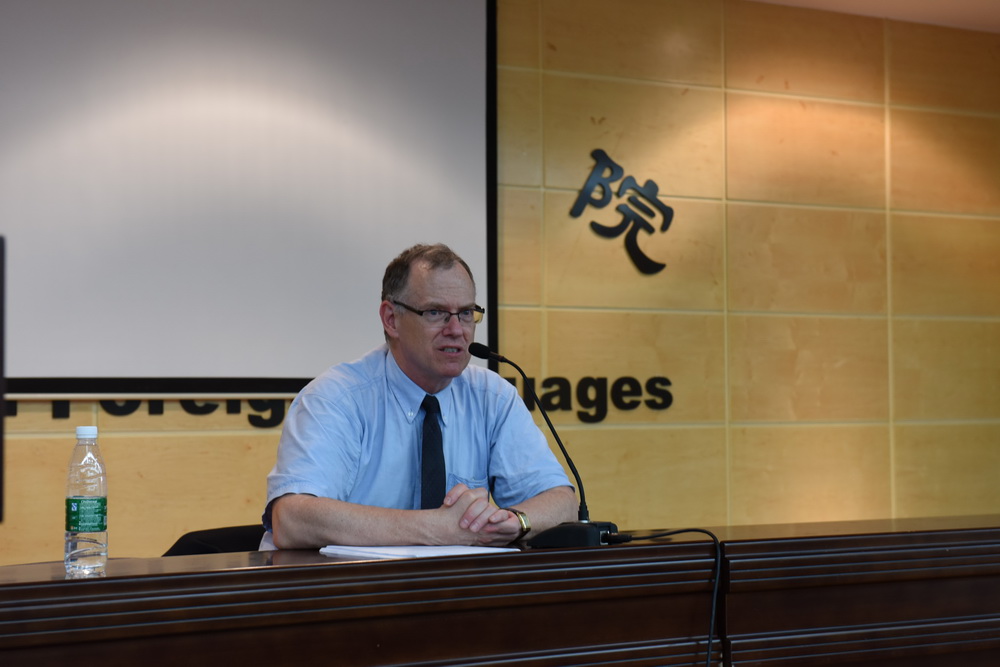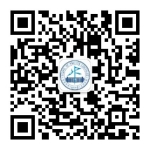
On May 4, 2016, Professor Jonathan Lock Hart Canada, Fellow of the Royal Society of Canada and Overseas Fellow of Cambridge, author of the book The Poetics of Otherness: War, Trauma, and Literature (2015) delivered the lecture entitled “History, Trauma and Literature” in School of Foreign Languages. His lecture is plain in language yet profound in meaning, and has produced active interaction among students and teachers.
Starting with the two different concepts “internal colonization” and “external colonization”, Professor Hart took Nanjing Massacre as a case, and elaborated on the influence of colonization on national economy, politics, culture, individual identity and psychology. From trauma in Asia, he expanded his topic to the traumatic experiences of European Jews during WWII and the huge population loss of native Indians because of the European colonization in the American Continent, and from historical events across the world, he went on to the classical texts which have been heavily imbued with the traces of trauma. In particular, he picked out Shakespeare’s The Tempest as a textual evidence to prove his point. From Francisco de Vitoria’s contribution to the international law to Bartolomé de las Casas’s description of the atrocities committed by the colonizers against the indigenous West Indians, from Aristotle’s concept of “natural slavery” to Montaigne’s criticism of “mechanical victories”, and then to Shakespeare’s plays, Professor Hart won the applause and admiration of the lecture participants with his mastery of history, philosophy and literature.
In the Q & A session, Professor Hart pointed out that trauma permeates the cultures of all countries and the study of generational trauma is of great significance to the contemporary social life. About the term “ecological imperialism”, Professor Hart also gave a detailed explanation by referring to the history of American Indians. Before the lecture ended, Professor Hart said he was deeply impressed by the attention and academic curiosities of SEU students and he encouraged the students to develop their critical thinking, and try to pursue their academic interest.
(Reported by WU Yang and Zhu Ting, Photographed by Chen Xiangyu)



